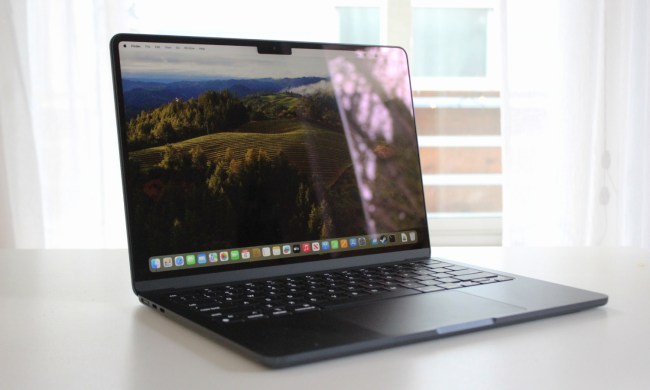 Apple’s latest keyboard idea was published today by the U.S. Patent and Trademark Office. The concept aims to use proximity sensors that will enhance tactile feedback from keystrokes which will, in turn, enhance user experience. The filing was entitled: “Input Devices and Methods of Operation”.
Apple’s latest keyboard idea was published today by the U.S. Patent and Trademark Office. The concept aims to use proximity sensors that will enhance tactile feedback from keystrokes which will, in turn, enhance user experience. The filing was entitled: “Input Devices and Methods of Operation”.
The problem they’re finding is that computing devices such as computers, mobile communication devices and portable media players, have become smaller and thinner. Smaller, low profile devices, like the MacBook Air, have smaller keyboards or keypads. When you press down on those keys they travel less distance than keys on a conventional keyboard, and Apple believes that this disparity doesn’t provide “a fully satisfactory user experience for users accustomed to more conventional designs.”
The inventors, Aleksandar Pance, Michael Sinclair and Brett Bilbrey, are pondering two solutions to the problem. The first system is intended to provided tactile feedback before the users comes in contact with the key. Once a key detects the proximity of a user about to type, the keyboard will “flow air from the input device proximate the key in question”. The air will come from either micro-preforated keys or holes adjacent to the key.
The other system involves the key being pneumatically pulled away from the user once it detects the typing intention. This pneumatic system would make it easier on finger when depressing keys. The patent says that the two systems “may be used in combination, providing initial air resistance to movement, and then withdrawing the key from the users touch.”
The designs could also be implemented in virtual keyboards “wherein each key location is merely a defined region on a solid surface” where contact with the surface region would signal keystrokes.


